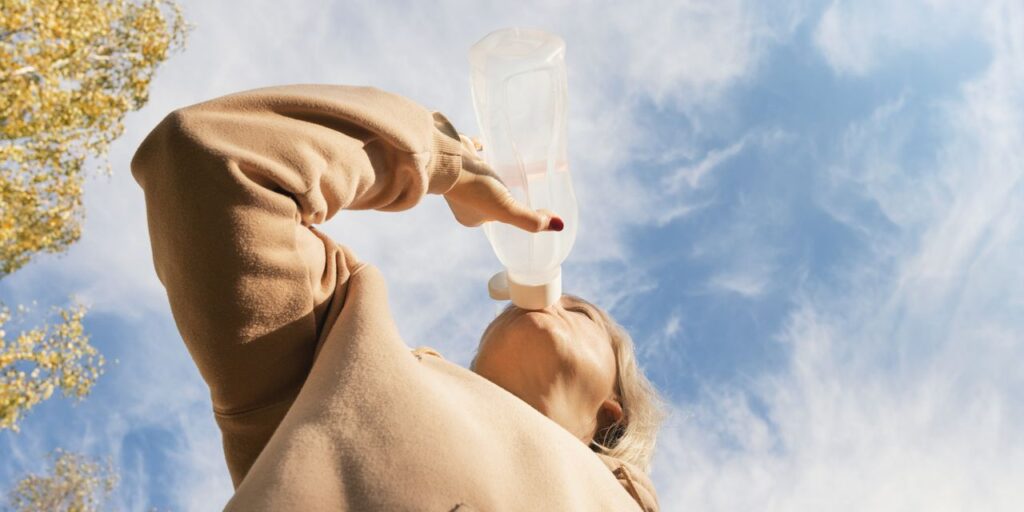Smoking
Smoking tobacco can decrease saliva production and cause dry mouth—just another reason to kick the bad habit. You can try some methods to try to quit smoking on your own, but you may ultimately need to work with an addiction specialist or other clinician who can help guide you through the often challenging process. The American Lung Association also has some helpful resources for anyone trying to quit smoking.
Sinus issues
“Anyone with a deviated septum or nasal polyps may have a hard time breathing through the nose, so they’ll breathe through the mouth,” Dr. Bhuyan says. Cue the dryness. “You might think this is normal for you and may not even realize you have a deviated septum or other sinus issue.” If you typically have trouble breathing out of your nose (and not just when you have a nasty cold), check in with your doctor to see if there’s a structural issue. FYI, sinus issues can also contribute to snoring, so the two may be in cahoots.
Dry mouth treatments
The most effective way to treat dry mouth is to understand the root cause, and take steps to mitigate that. While you may not always be able to pinpoint what’s behind the dryness, there are a handful of things you can try to see if they help.
Home remedies and lifestyle changes
Focus on hydrating properly.
Dr. Bhuyan underscores that for many, dry mouth is caused by dehydration, so drinking more water might just fix the problem. If you’re consuming approximately eight glasses a day and your urine is pale yellow (a sign of excellent hydration), you should feel better. Limiting caffeine may help too, as it can potentially dry out your mouth further.
Increase saliva production.
Chewing on sugar-free gum or sucking on sugar-free lozenges are easy ways to help increase moisture in the mouth, Dr. Han says. They work by activating the taste buds and stimulating the salivary glands to produce more saliva. Dr. Lerner suggests Xylitol-based lozenges, like XyliMelts or Dr. John’s Healthy Sweets, which work by triggering the glands while also neutralizing acid and boosting tooth health. (Just be careful about consuming too much, because the sugar alcohol may cause some GI discomfort in people who are sensitive to it.)
Sleep with a humidifier.
If your dryness sets in at night or is the worst first thing in the morning, try snoozing with a humidifier. “Some doctors recommend you sleep with a humidifier; it moisturizes the room and can help keep your mouth moisturized,” says Dr. Bhuyan. (It’s also a great remedy for dry skin, so there’s a nice little bonus.)
Quit your vices.
If you smoke or use drugs, do what you can to kick the habit. (If you need some guidance, SELF has some helpful information on how to finally quit smoking cigarettes.) It will improve your overall health—in so many ways—and get your mouth feeling better, too.
Switch up your meds.
If you think any of your prescription medications are causing dry mouth, check in with your doctor to see what you can do. Changing medications, if possible, may help.
Over-the-counter (OTC) and prescription medications
Try a saliva rinse or spray.
Alcohol-free mouth rinses and saliva substitutes, which come in the form of both sprays and gels, can also help to rehydrate your mouth, says Dr. Han. A few examples: Biotene Dry Mouth Oral Rinse or Oasis Moisturizing Mouth Spray.
Turn to OTC and prescription dry mouth treatments.
If your dry mouth is chronic and/or caused by a Sjogren’s or a side effect of radiation, your doctor may write you a prescription for a drug that increases natural saliva production like pilocarpine (Salagen) or cevimeline (Evoxac).
Related:
Get more of SELF’s great service journalism delivered right to your inbox.


